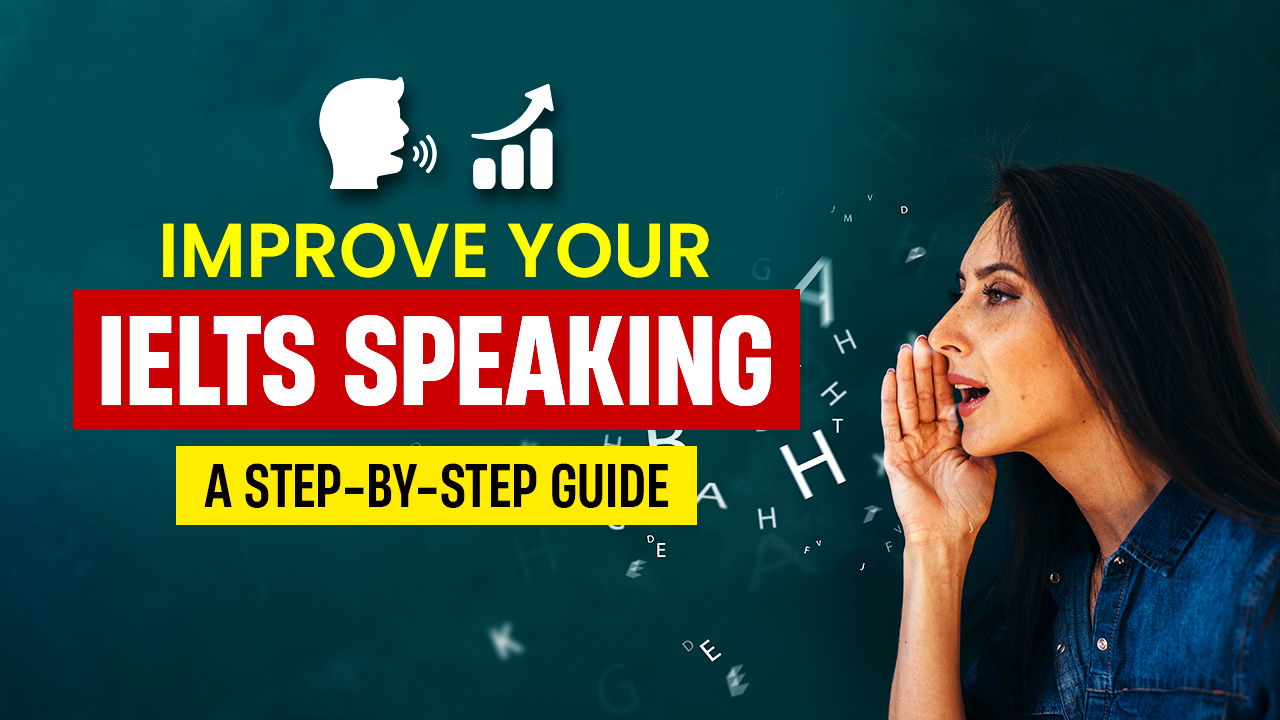If you’re preparing for the IELTS exam, the speaking section might feel like the most nerve-wracking part. After all, it’s just you and the examiner, face-to-face. No multiple-choice options, no time to hide behind grammar books — just your words. But here’s the good news: with the right approach and regular practice, anyone can speak confidently and score high in IELTS Speaking.
In this guide, we’ll walk you through a step-by-step method to improve your speaking skills without stress. Whether you’re aiming for Band 6 or pushing for Band 8+, these tips will help you get there — naturally and confidently.
Step 1: Understand the Test Format
Before diving into practice, you need to know what to expect. The IELTS Speaking test has three parts:
- Part 1: Introduction and basic questions about familiar topics (4-5 minutes)
- Part 2: A short speech or “cue card” topic (3-4 minutes including prep)
- Part 3: A deeper discussion related to Part 2 (4-5 minutes)
Knowing the structure reduces nervousness. It’s like walking into a game where you already know the rules.
Step 2: Speak in English Every Day
No shortcut beats daily practice.
Talk to yourself in English when you’re alone. Describe what you’re doing, your surroundings, or how you feel. For example:
- “I’m making tea right now. It smells really nice.”
- “It’s raining today, and I love the sound of it.”
It may feel silly at first, but this builds fluency and confidence. If you have friends or family willing to practice, chat with them in English too.
Step 3: Record Yourself Speaking
Recording is a powerful tool. Choose a simple topic like “My Favorite Movie” or “A Memorable Trip”, speak for 1-2 minutes, and then listen back.
Here’s what to notice:
- Are you pausing too much?
- Are you repeating the same words?
- How’s your pronunciation?
This helps you track your improvement over time and work on weak areas.
Step 4: Build Vocabulary Naturally
Memorizing word lists is boring. Instead, learn new words from real-life content like movies, YouTube videos, or podcasts. Note interesting expressions and practice using them in your own sentences.
For example:
- Instead of always saying “good”, try words like “fantastic”, “enjoyable”, or “memorable”.
- Instead of “I think”, try “In my opinion” or “From my perspective”.
But don’t overuse complex words. Use what sounds natural to you.
Step 5: Work on Pronunciation and Clarity
IELTS doesn’t expect you to sound British or American. You just need to be clear and understandable.
Tips to improve pronunciation:
- Watch English shows with subtitles and repeat after the characters.
- Practice reading aloud from books or articles.
- Use free tools like YouGlish or Google Translate to check how words are pronounced.
Remember, it’s not about having a “perfect” accent. It’s about clear communication.
Step 6: Learn to Handle Cue Cards Smartly (Part 2)
This part can be tricky — you get one minute to prepare and then speak for 1-2 minutes.
Here’s how to handle it:
- Don’t try to memorize answers. Instead, follow a structure: Introduction → Details → Personal Story → Conclusion.
- Use the one minute wisely: write 4-5 keywords, not full sentences.
- Stick to the topic, but feel free to be creative.
Even if your story is not 100% true — it’s fine! The examiner is testing your language, not your honesty.
Step 7: Stay Calm and Be Yourself
Don’t try to impress the examiner with big words you don’t fully understand. Speak naturally, like you would in a friendly conversation. Mistakes happen — just keep going.
Tip: If you don’t understand a question, it’s okay to say:
- “Could you please repeat that?”
- “I’m not sure I understood the question. Can you say it differently?”
Being honest is better than giving a confused or unrelated answer.
Step 8: Get Feedback from Others
If possible, practice with a teacher or someone experienced in IELTS. They can point out mistakes you might not notice yourself. Even a friend who speaks good English can be helpful.
Apps like Cambly, iTalki, or HelloTalk can also connect you with native speakers for speaking practice.

